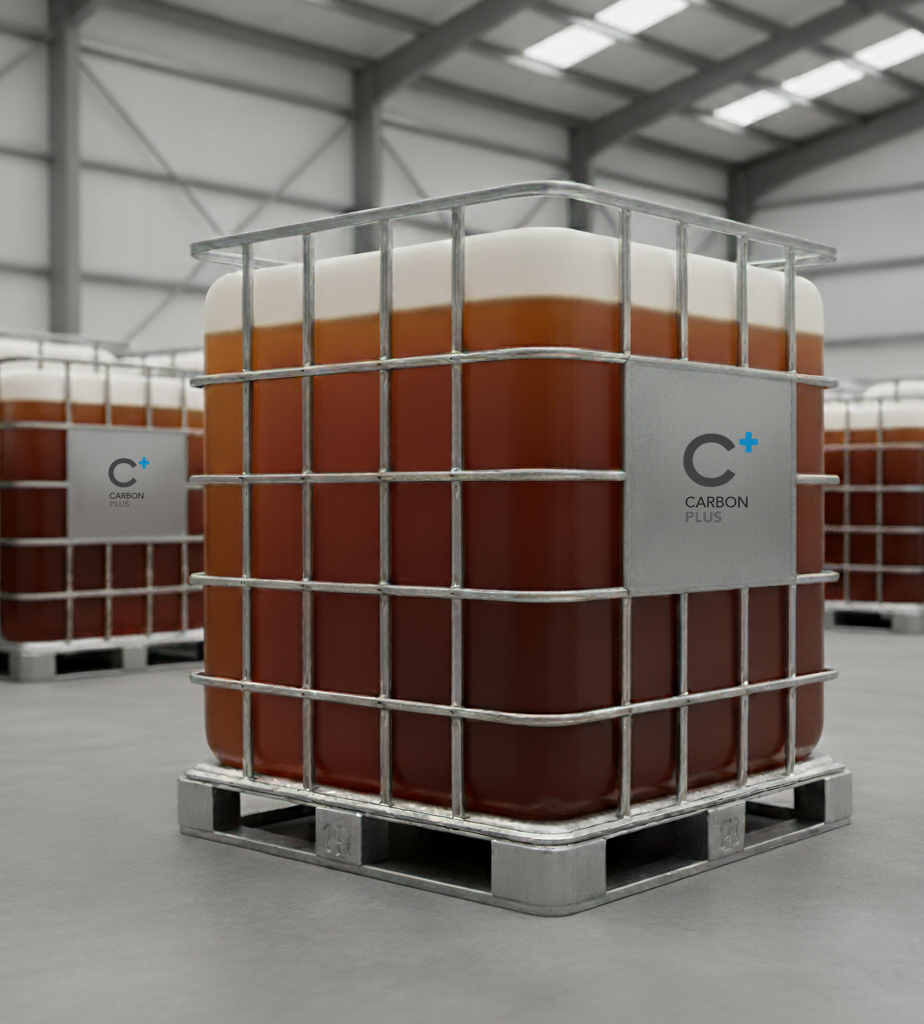What is Pyroligneous Acid?
Pyroligneous Acid—often called Wood Vinegar or Bamboo Vinegar depending on the feedstock—is a natural liquid co-product of the biochar production process. It contains a rich mix of minerals, organic compounds, and beneficial acids.
Research shows that wood vinegar can include more than 200 distinct components, and it has been used across Asia for decades to enhance agricultural practices, from improving soil health to supporting plant growth. It also functions as a natural pest repellant, helping to protect crops without synthetic chemicals.

Uses of Pyroligneous Acid
1. Foliar Applications:
- Spraying diluted pyroligneous acid on plant leaves increases vitality and improves crop quality.
- Foliar sprays also help control harmful insects and certain plant diseases.
2. Complementary with Agricultural Inputs:
- Works synergistically with fertilizers and pesticides—the combined effect is greater than using either one alone.
3. Soil Health:
- High concentrations inhibit eelworms and suppress soil-borne diseases.
- Low concentrations (or during natural breakdown) boost populations of beneficial microbes.
- Encourages stronger root development.
4. Composting & Waste Management:
- When mixed with manure, it reduces odours and accelerates composting.
Application Rates
Recommended by the Appropriate Technology Association of Thailand (ATA, p. 27–28)
Dilute pyroligneous acid with water as indicated. In some cases, specific pest identities were not detailed.
Pest & Disease Control
Repel nematodes:
- Tomatoes: 1:500, apply to base of plants
- Strawberries: 1:200, apply to base of plants
- Black pepper vines: 1:1,500, use in place of water
Repel insect pests:
- Cabbage & Chinese cabbage: 1:1,500, use in place of water
- Corn: 1:300, spray onto leaves
Control fungal diseases:
- Tomato & cucumber: 1:200, spray onto leaves
Control root rot:
- Tomato & cucumber: 1:200, apply to base of plants
Reduce chili flower abortion:
- Chili pepper: 1:300, spray onto leaves
Repel house flies:
- 1:100, apply to affected areas
Soil & Compost
Stimulate compost production:
- 1:100, increases beneficial microbes and shortens composting time
Enrich garden soil:
- 1:30, apply 6 L/m² before planting
- 1:5 to 1:10, for soil-borne pathogen control
Improve flavor & stimulate growth:
- 1:500 to 1:1,000, prevents excess nitrogen, boosts metabolism, raises fruit sugar levels
Livestock & Odor Management
Supplement livestock feed:
- 1:200 to 1:300, balances gut bacteria and improves nutrient absorption
Combat animal-pen odors:
- 1:50, reduces ammonia and foul smells
Learn more about pyroligneous acid
Interested in pyroligneous acid applications and trials?
